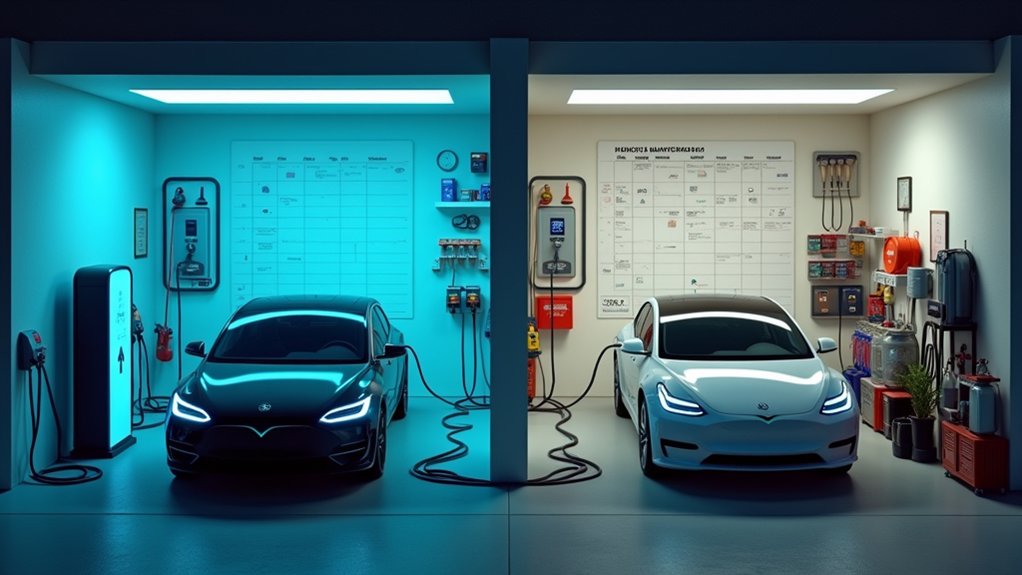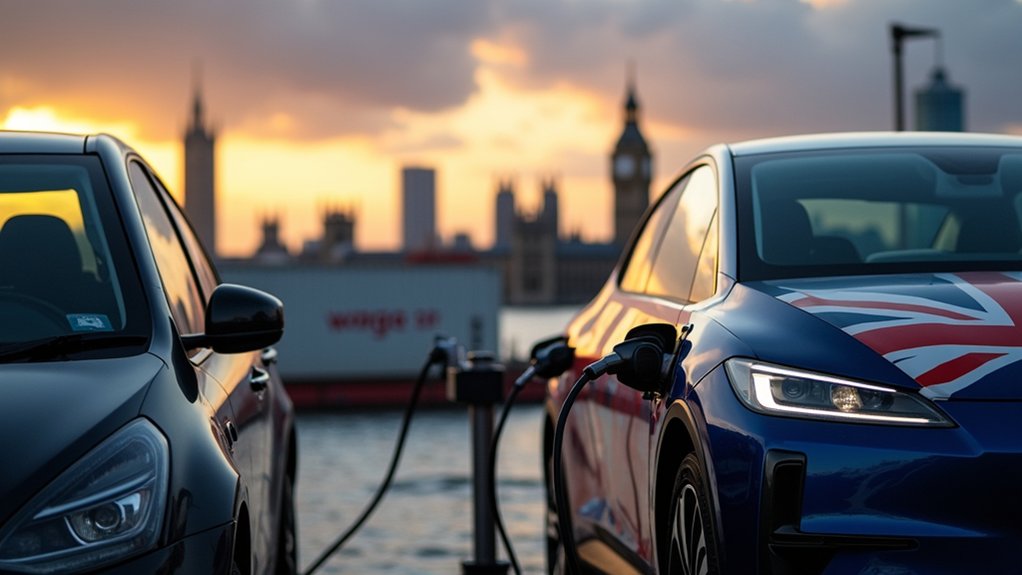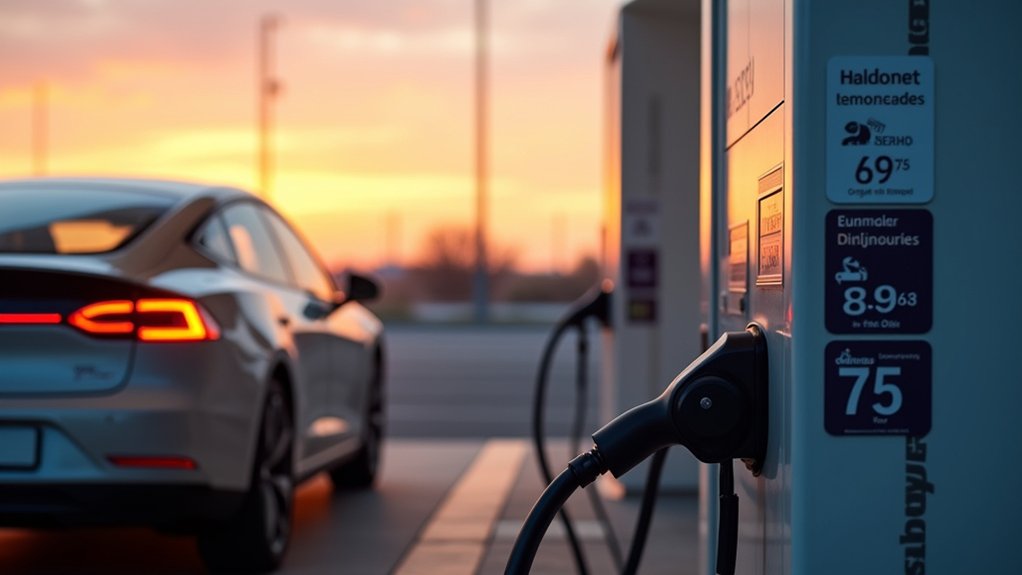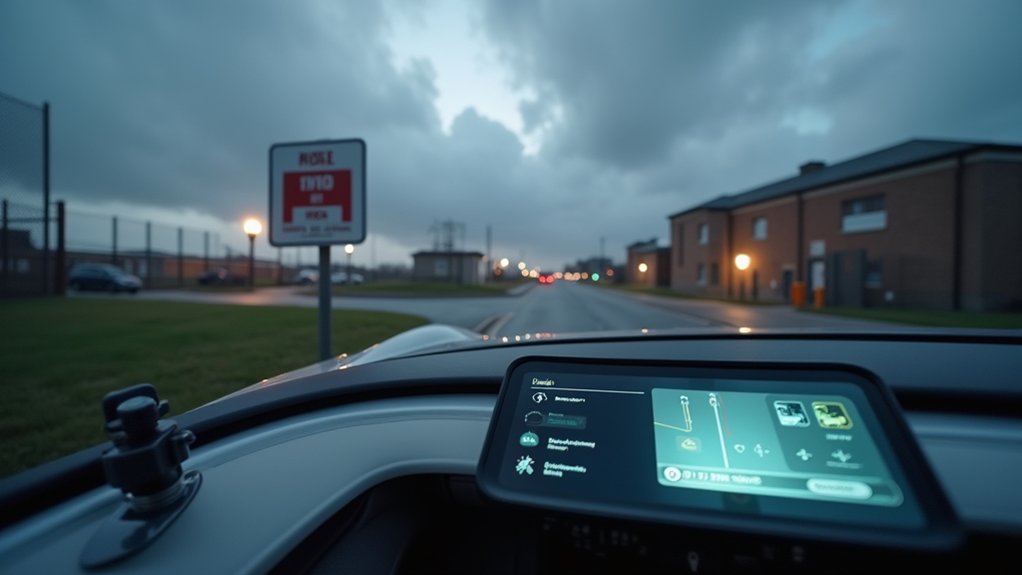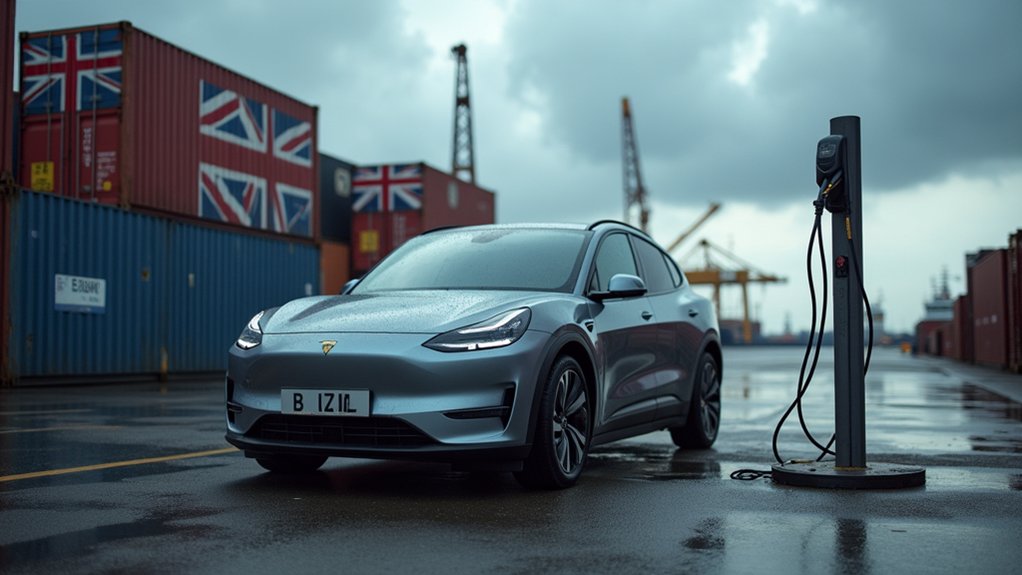How drastically can tax changes alter consumer behavior in the automotive market? April 2025’s stark 10.4% drop in new car registrations across the UK provides compelling evidence of the immediate impact fiscal policy can exert on vehicle purchases. This significant decline, representing 13,943 fewer units than April 2024, stemmed directly from Vehicle Excise Duty (VED) changes implemented on April 1, particularly the extension of the Expensive Car Supplement to many electric vehicles.
Fiscal policy shifts can transform automotive purchasing behavior overnight—as April’s dramatic 10.4% sales decline clearly demonstrates.
The contrasting March figures tell the complete story. With registrations surging 12.4% year-on-year to 357,103 units, consumers clearly accelerated purchase decisions to beat the April tax hike. I’ve rarely seen such a pronounced example of tax-avoidance purchasing behavior in the automotive sector. This pre-emptive buying spree temporarily masked underlying market weakness, which became unmistakable once April’s numbers emerged showing sales 25.3% below pre-pandemic April 2019 levels.
Volkswagen maintained market leadership through Q1, achieving 53,156 sales for a 28.6% increase, while the Ford Puma retained its position as Britain’s best-selling model. However, these successes occurred against a backdrop of six monthly declines in the past seven months, indicating persistent challenges despite the overall year-to-date growth of 6.4% through March. This pattern mirrors the broader European trend, where total registrations declined by 1.9% in Q1 2025 compared to the previous year. The situation contrasts sharply with the U.S. market where income restrictions on EV incentives have created a more predictable purchasing environment.
The EV segment faces particular headwinds following the tax revisions. After buyers rushed to acquire electric vehicles before the Expensive Car Supplement took effect, April witnessed diminished enthusiasm. Despite challenges, Battery Electric Vehicle registrations increased by 8.1% to 24,558 units in April, showing resilience in this segment. This cooling comes precisely when the EU’s battery-electric market share reached 15.2% in Q1 2025, raising questions about the UK’s comparative progress.
Looking ahead, industry forecasts project 1.964 million new registrations for 2025, but signals considerable uncertainty for 2026. The April sales collapse demonstrates how quickly market momentum can evaporate when tax policy shifts suddenly.
Consumer confidence, already fragile amid broader economic pressures, appears increasingly susceptible to fiscal shocks that transform buying patterns overnight.

